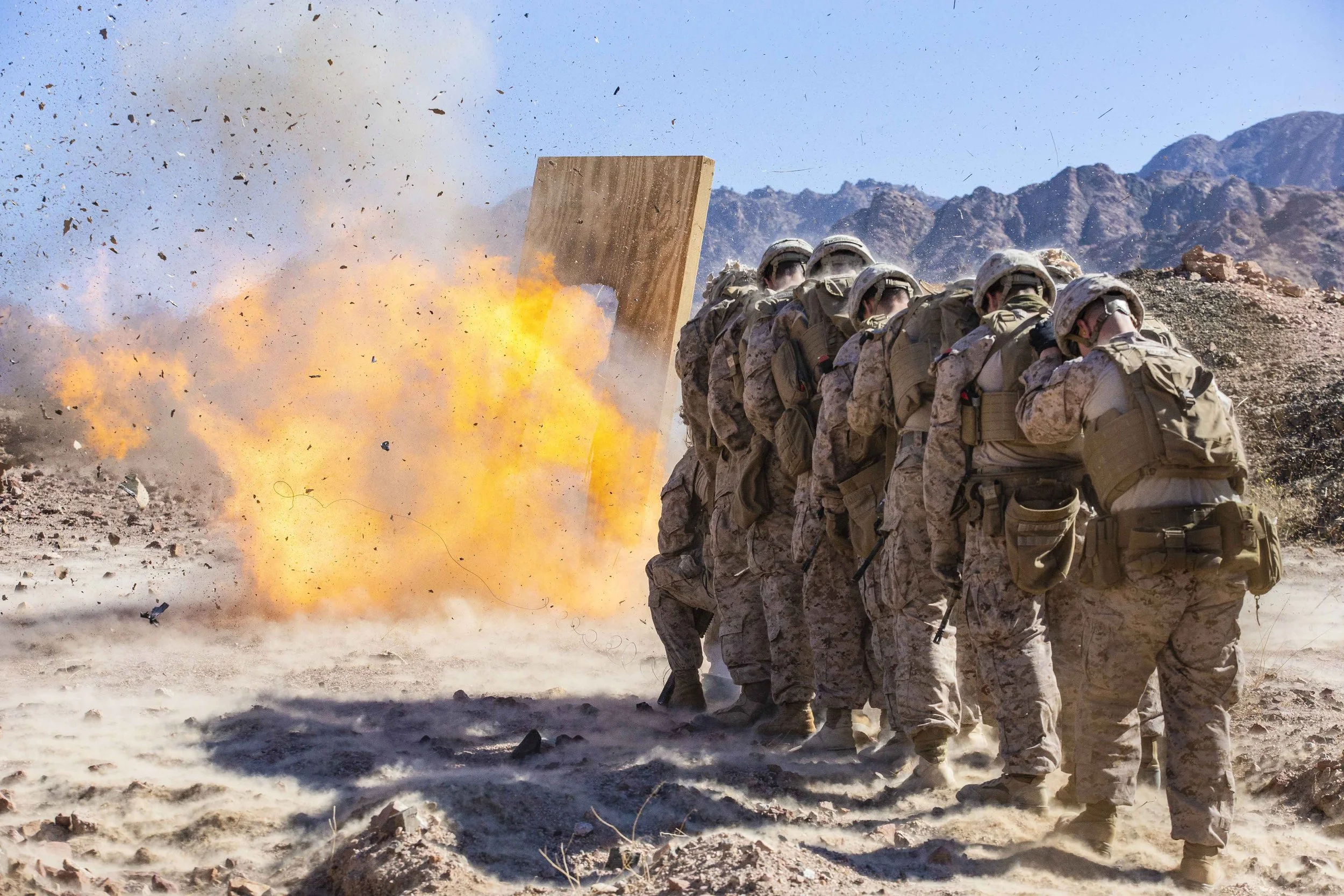Ongoing Projects
-
![An elderly woman with gray hair peacefully sleeping, resting her head on a pillow and touching her face gently.]()
-
![A line of soldiers in camouflage uniforms and helmets are kneeling during a military grenade training exercise in a desert landscape with mountains in the background, as an explosion occurs nearby.]()
-
![A mannequin head wearing a black and gray virtual reality headset.]()
Low Intensity Focused Ultrasound Modulation of Deep Brain Structures to Enhance REM Sleep
In this study, participants sleep overnight while we monitor their brain activity and test gentle, non-invasive brain stimulation. The goal is to improve sleep and memory consolidation in people with disrupted sleep, PTSD, or a history of brain injury.
-
![A man sleeping peacefully on a bed with white linens and a pillow, with a black background.]()
-
![Soldier lying on the ground in uniform and gear, appearing to be resting or injured.]()
Insomnia, Nightmares, and Sympathetic Activity Investigation in the Warfighter
We are conducting a cutting-edge clinical trial using wearable technology to improve sleep in Warfighters with insomnia and sympathetic nervous system hyperactivity, while simultaneously validating biomarkers of autonomic and glymphatic function.
-
![A brain illustration with a person sleeping on top of it, indicating resting or dreaming, surrounded by clouds and a blue background.]()
Local Sleep in the Waking Brain: A Novel Target for Cognitive Fatigue
This study explores what causes the brain to feel tired after long periods of wakefulness and aims to find new ways—both behavioral and medical—to prevent the negative effects of sleep loss. It focuses on “local sleep in wake”, when small brain regions briefly enter a sleep-like state during wakefulness, leading to lapses in attention and reduced performance.
-
![]()
In vivo Imaging of Glymphatic Circulation: Measurement of Brain Interstitial Fluid Flow During Wake and Sleep with Ultra–Hight Performance MRI
This project is creating new brain imaging tools to measure how fluid flows in the brain during sleep, helping us understand how poor sleep affects health and performance—especially in Service Members who work long or irregular hours.
-
![]()
Getting to Gut: Comparative Body Site Sampling Toward Less Invasive Gut Microbiome Assessment in Military Personnel/Athletes
This study explores whether less invasive sampling methods can reliably reflect gut microbiome changes, making it easier to study brain injury-related biomarkers in future research.
-
![]()
-
![]()
Assessment of Changes in Human Blood Proteome Following Total Sleep Deprivation
This study looks at how proteins in the blood change after recovery sleep following sleep deprivation. By analyzing both general blood proteins and those from brain-related cell fragments called exosomes, we aim to uncover biological markers linked to how well someone recovers and potential resiliency to sleep loss.
-
![]()
SRS Foundation Small Research Grant
This study measures how people respond to total sleep deprivation by tracking attention lapses using a reaction-time test and changes in brain activity during deep sleep. We will examine how fluid shifts in the brain vary after sleep loss using near-infrared light technology and explore genetic risk factors for Alzheimer’s disease through a broad genetic screening approach.
-
![]()
Previous Projects
-
Sleep-Wake Intracerebral Fluid Tracking: frequency-domain near-infrared glymphatics in TBI
This study uses advanced brain imaging and sleep tracking to explore how sleep deprivation affects fluid movement in the brain. By comparing healthy sleepers and individuals with brain injuries, we aim to better understand how sleep impacts brain health and recovery.
Want to learn more about our research?
For general questions or to get in touch with our team, please fill out the form below.












